Select Committee's report darkens clouds over Team Sky and Brailsford
MPs believe Team Sky used corticosteroids to enhance performance
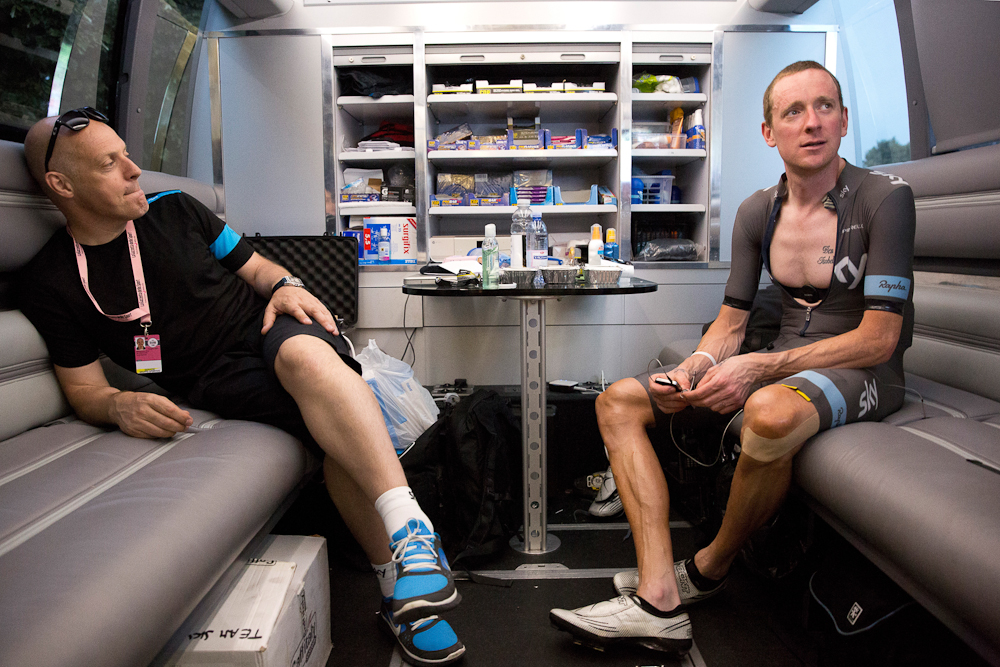
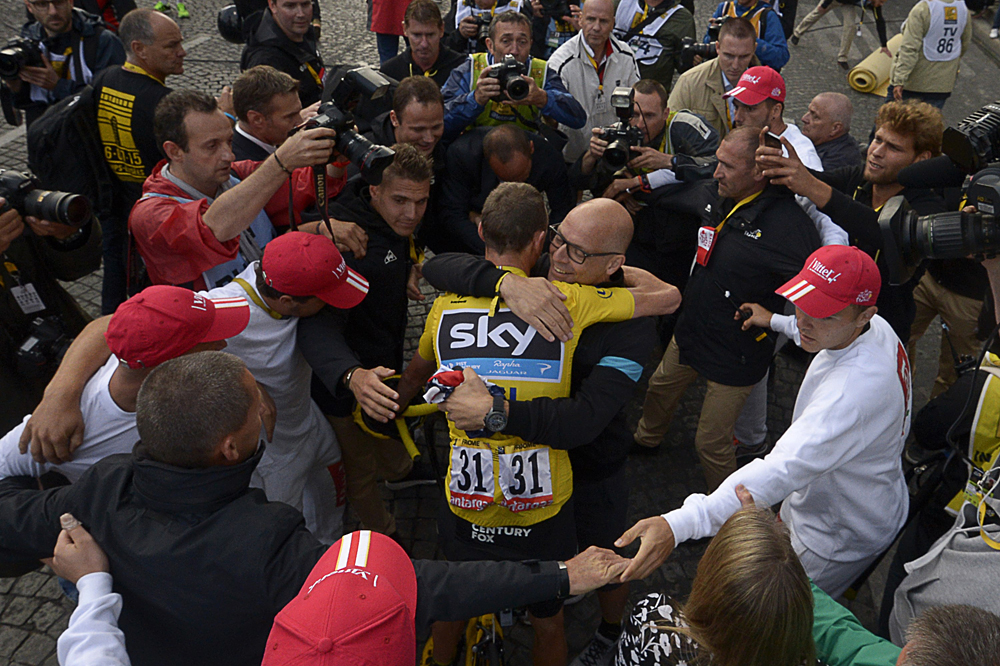
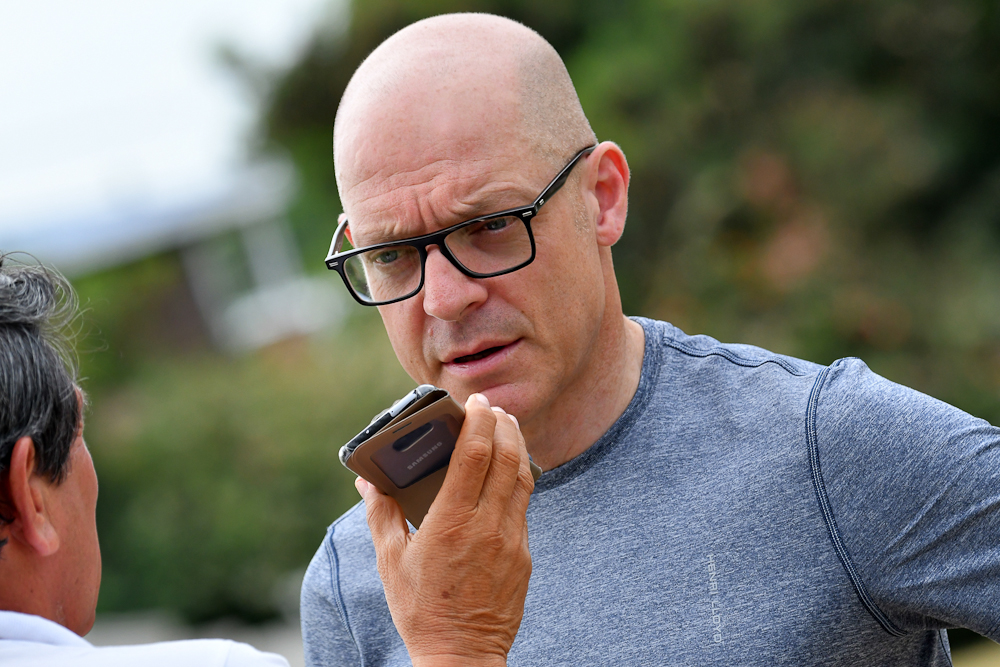
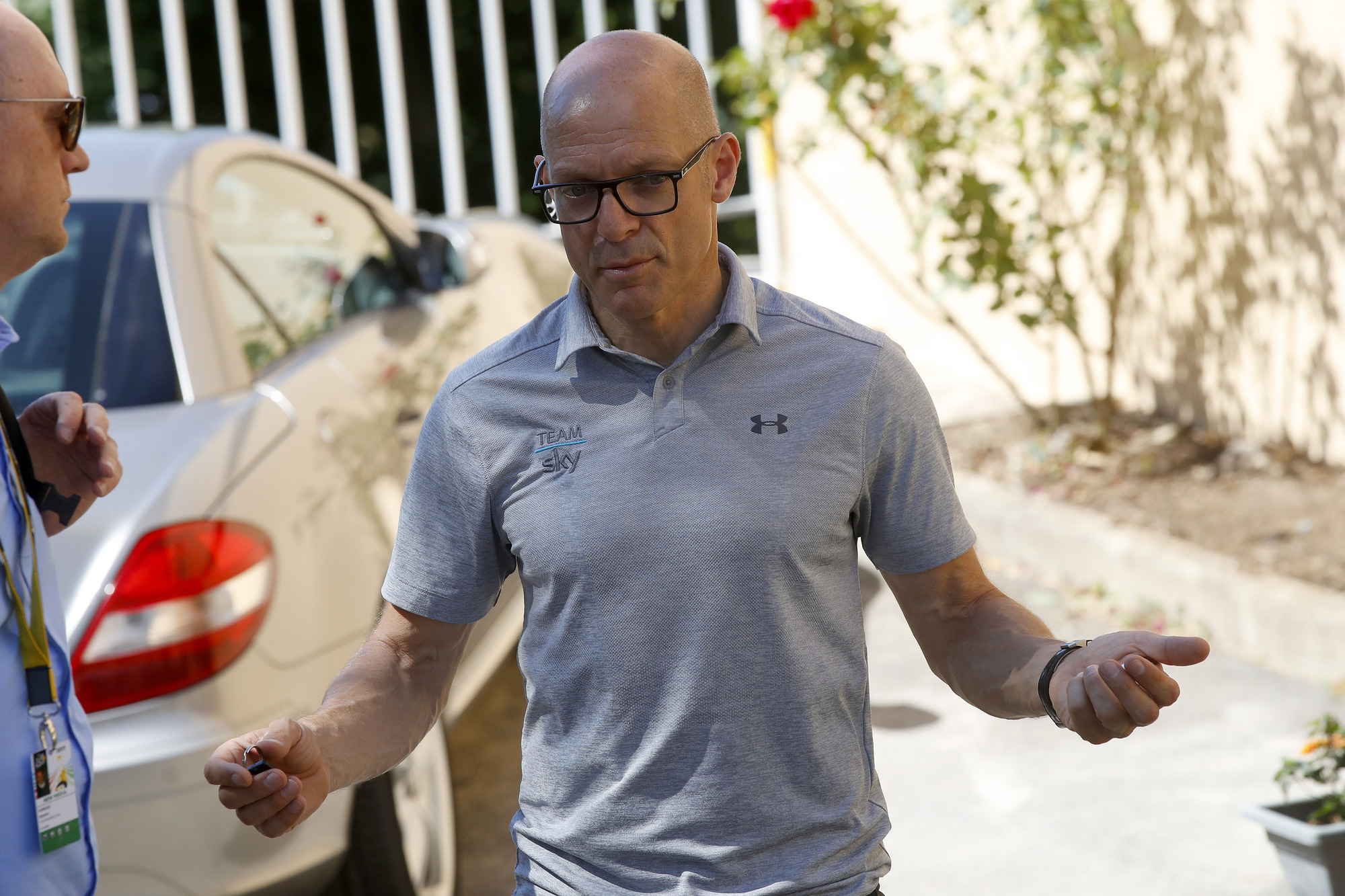
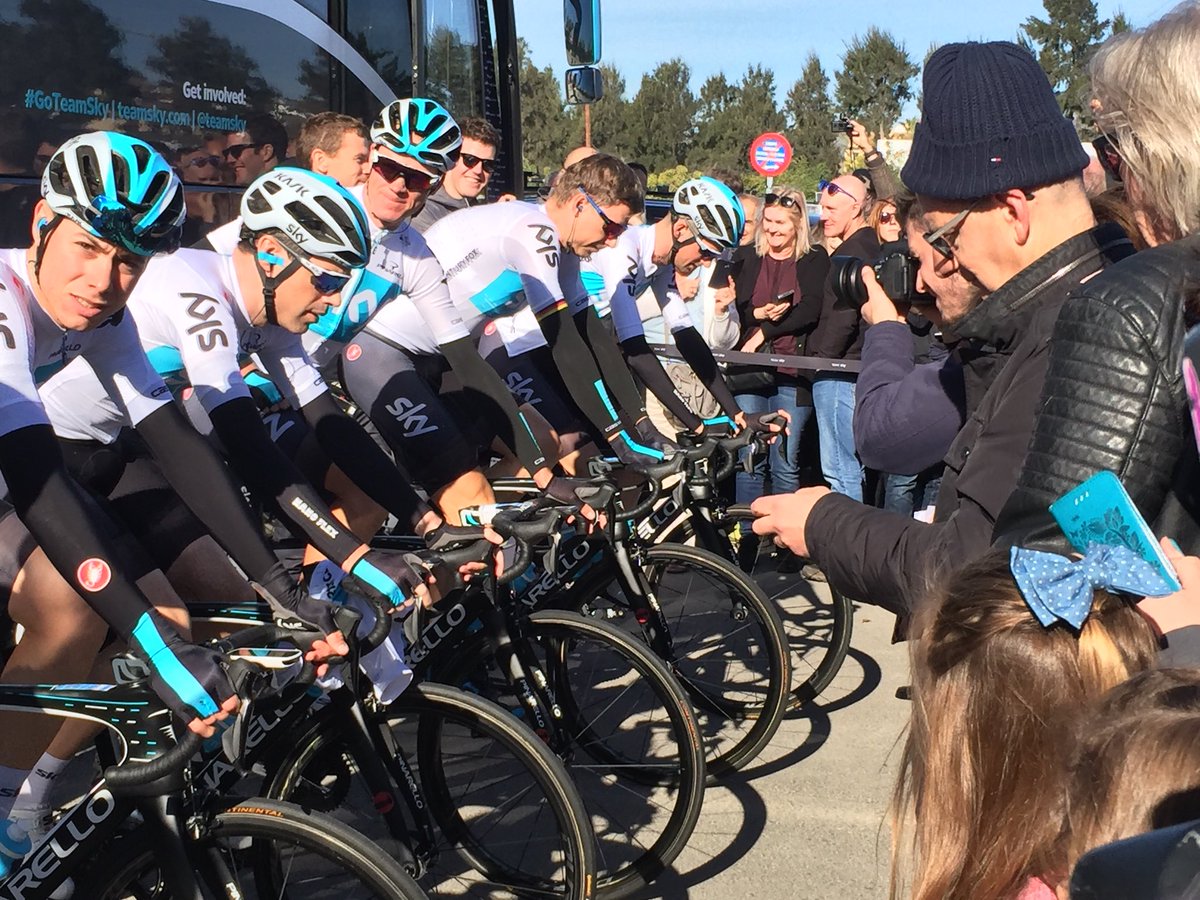
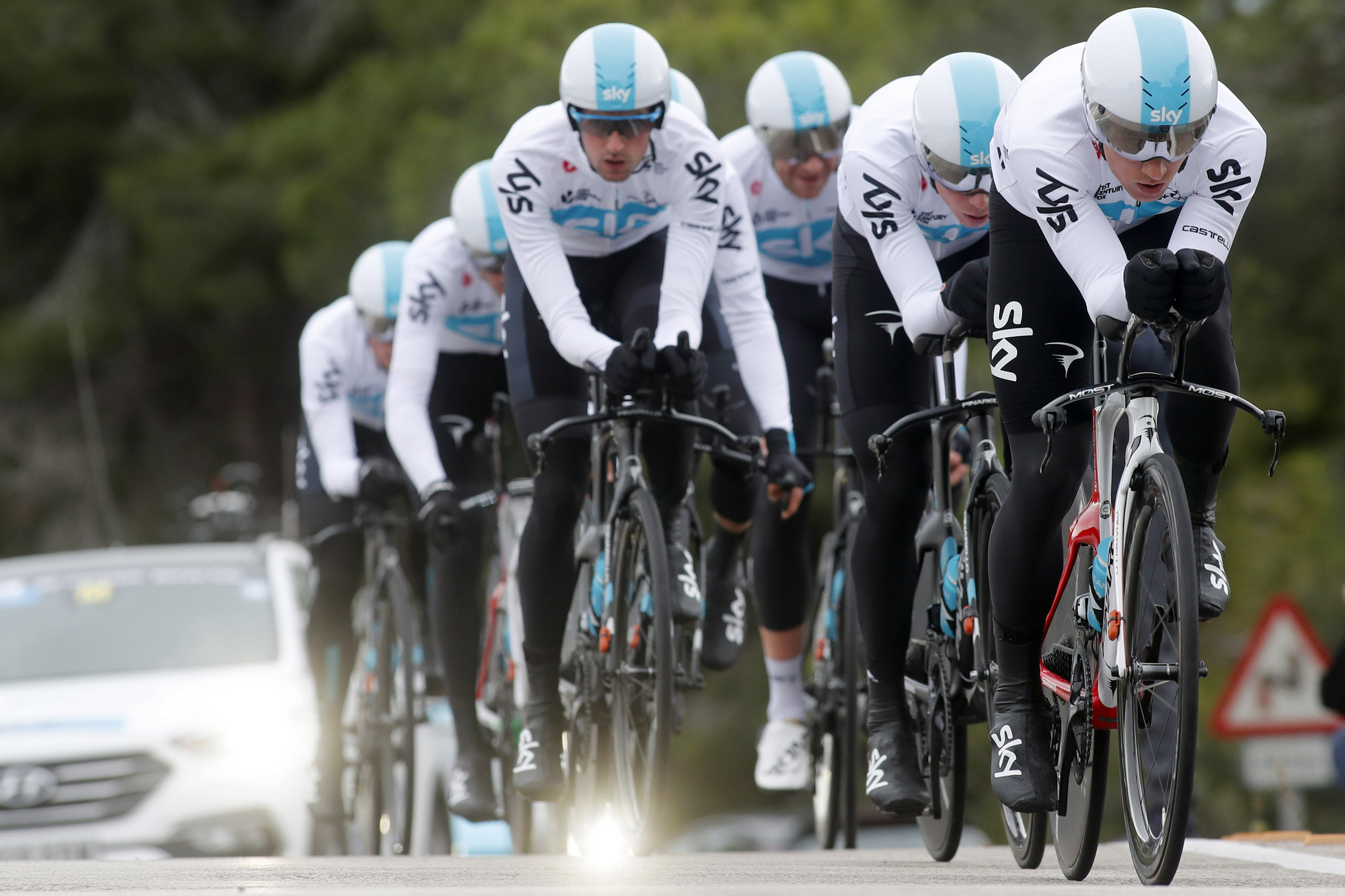
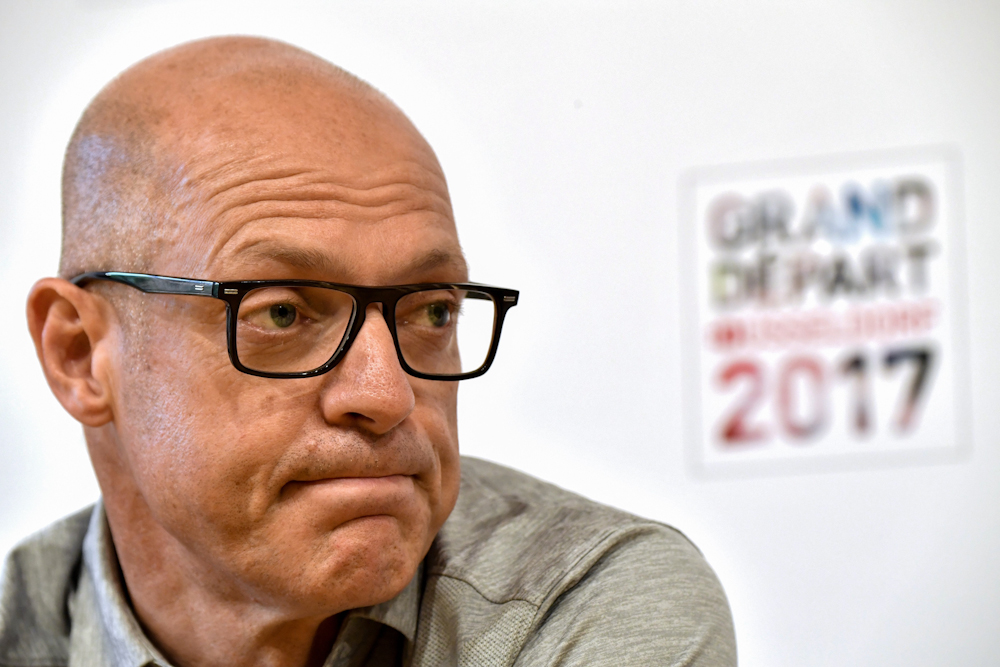
The findings of the Digital, Culture, Media and Sport Committee's report into 'Combating Doping in Sport' has provided a damning indictment of British Cycling, Team Sky and their principal, Dave Brailsford.
British Cycling admits failures in Wiggins medical delivery
UKAD launch damning attack on Team Sky and British Cycling over medical practices
Select Committee report to reflect concerns over Team Sky and British Cycling
Opinion: Brailsford must resign for Team Sky to survive
Bradley Wiggins quickly dismisses drug claims in DCMS report
The report, almost three years in making, and released for public consumption on Monday, set out a detailed analysis of the medical practices used and abused by both British Cycling and Team Sky, and shed further light on their dwindling credibility through the eyes of the Committee. There was also the inclusion of new evidence, and a startling testimony that indicated the Committee's belief that Team Sky riders, other than Bradley Wiggins, were treated with corticoidsteroids out of competition in order to shed weight ahead of the 2012 Tour de France. Not illegal per se, but a tactic that further damages Team Sky's credibility and Dave Brailsford's position. Team Sky have denied the allegation.
The report also states that the General Medical Council should take 'appropriate action' in relation to Dr Freeman – the man at the centre of the infamous jiffy-bag,' – and that Team Sky and British Cycling should provide UK Anti-Doping with compensation. There is also a call from the Committee for certain doping offences to become criminalised.
The overriding message from the report, in relation to Team Sky, criticised the organisation over their conduct. Team Sky were founded in 2010 and professed to be 100 per cent clean from the outset. They introduced and preached a policy of zero tolerance but were made, by the Committee's questioning and findings, to look weak, haphazard in their attempts to nullify questioning from both reporters and the Committee, disjointed in procedure and most alarming of all, unable to provide evidence to back up their story.
Read more on this story
- Opinion: Brailsford must resign for Team Sky to survive
- Exclusive: Team Sky riders consider asking Brailsford to resign
- De Jongh: I can't see Brailsford lasting at Team Sky
- UKAD chairman labels British Cycling's and Brailsford's parliamentary evidence 'extraordinary'
- Former British Cycling coach claims there was a 'macho and brutal' culture under Brailsford
- Pooley: Brailsford and Sky need to get their facts straight
- UKAD investigation rolls on as Brailsford's parliamentary questioning looms
The report, which was launched in 2015, looked at a number of issues including athletics, TUEs and cycling. The focus on cycling came after the 2016 Fancy Bears hack revealed that Bradley Wiggins had taken three doses of the powerful corticoid, triamcinolone, on the eve of three Grand Tours between 2011 and 2013. He famously went on to win the Tour de France in 2012, becoming the first British rider and Team Sky athlete to do so.
Further to Fancy Bears, a UK Anti-Doping investigation into a claim that Team Sky had committed a doping violation by treating Wiggins with triamcinolone at the finish of the 2011 Criterium du Dauphine only intensified the pressure, with Brailsford, Shane Sutton and Dr Freeman required to give evidence to both UKAD and the Select Committee.
The latest race content, interviews, features, reviews and expert buying guides, direct to your inbox!
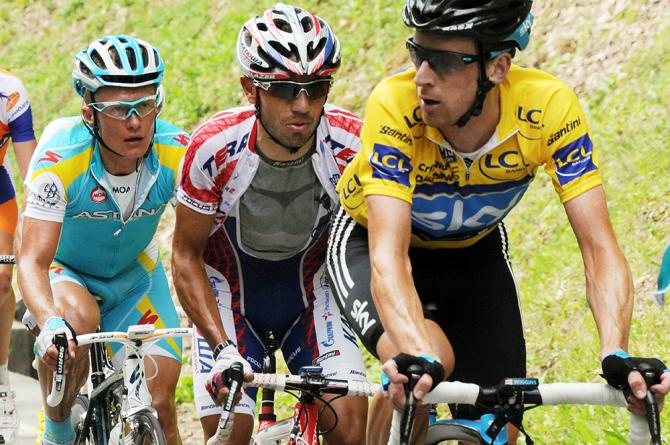
The findings of the Select Committee will make for difficult reading for those at British Cycling's base in Manchester, Team Sky and Brailsford, with the latter's very own integrity called into question, not just for Team Sky's lack of medical records in relation to Wiggins, but for the use of medical products in questionable and unethical manners. The fall from grace for Brailsford, however, will feel all the heavier given that the Select Committee raised serious concerns over the accuracy of his testimony before them.
"Contrary to the testimony of David Brailsford in front of the Committee, we believe that drugs were being used by Team Sky, within the WADA rules, to enhance the performance of riders, and not just to treat medical need," the report reads.
"From the evidence that has been received by the Committee regarding the use of triamcinolone at Team Sky during the period under investigation, and particularly in 2012, we believe that this powerful corticosteroid was being used to prepare Bradley Wiggins, and possibly other riders supporting him, for the Tour de France. The purpose of this was not to treat medical need, but to improve his power to weight ratio ahead of the race. The application for the TUE for the triamcinolone for Bradley Wiggins, ahead of the 2012 Tour de France, also meant that he benefited from the performance-enhancing properties of this drug during the race."
Team Sky responded on Sunday evening with a statement, denying the allegation, before rounding on the committee itself.
"The Report details again areas in the past where we have already acknowledged that the Team fell short. We take full responsibility for mistakes that were made. We wrote to the Committee in March 2017 setting out in detail the steps we took in subsequent years to put them right, including, for example, the strengthening of our medical record keeping," Team Sky's statement read.
"However, the Report also makes the serious claim that medication has been used by the Team to enhance performance. We strongly refute this. The report also includes an allegation of widespread Triamcinolone use by Team Sky riders ahead of the 2012 Tour de France. Again, we strongly refute this allegation. We are surprised and disappointed that the Committee has chosen to present an anonymous and potentially malicious claim in this way, without presenting any evidence or giving us an opportunity to respond. This is unfair both to the Team and to the riders in question."
Cyclingnews enquired as to whether Dave Brailsford would be available for interview. Our request was denied.
The report also focused upon the circumstances that led Team Sky to send Simon Cope to courier the medical package all the way to the Dauphine, when the apparent contents, according to Team Sky – an over the counter decongestant – was available at a nearby pharmacy the team had used in the past. On this occasion in 2011, when the Daily Mail's Matt Lawton first picked up the story he was met with inaccurate information from Brailsford, who insisted that Cope was not at the Dauphine for Team Sky but visiting female rider Emma Pooley. When that was proven to be false the team principal then offered Lawton the possibility of a different story concerning another matter in a clear attempt to deflect attention. He told Lawton, "if you didn't write the story, is there anything else that could be done?"
The Select Committee, like UKAD, ran into a brick wall due to the lack of evidence concerning the package but they raised serious questions about Team Sky's version of events. In fact, they went as far as a committee of their nature could without explicitly calling the story untrue.
"To many people, the whole story of the package seems implausible, to say the least," the report reads.
"If the package was needed urgently, why, according to travel records given to the Committee by British Cycling, did Simon Cope collect it from Manchester on 8th June, but not fly out with it until 12th June. If the package did indeed contain Fluimucil, why was someone asked to bring it out from Manchester, when one of the pharmacies where Team Sky had previously sourced this same drug was just a few hours' drive away in Switzerland, at the Pharmacie De La Plaine, in Yverdon."
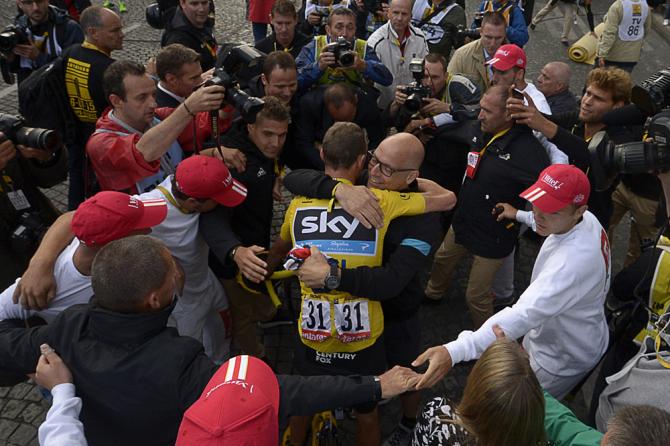
There was the further criticism of the lack of leadership and oversight with regards to Dr Freeman and medical operations within Team Sky. The fact that no one, not the man who packaged up the jiffy-bag in Manchester, nor the courier, doctor, team manager or athlete could provide a shred of evidence that Fluimucil was indeed the contents, might be seen as an isolated incident but the Select Committee found systemic failings when it came to medical practices both at Team Sky and British Cycling. Dr Freeman was apparently operating outside team authority and not using the team's Dropbox protocol to keep medical records for the team's star rider.
The report found that shocking, to say the least:
"Despite the fact that it was Team Sky policy for medical records of riders to be uploaded to a shared Dropbox cloud computing storage site, this was never done. Nor, in the three years from 2011 to 2014, did anyone at Team Sky check this, and insist that the records were uploaded. This is, even more, lacking in credibility given that these were not just the records for a junior rider, but those of the lead cyclist in the team.
"Team Sky's statements that coaches and team managers are largely unaware of the methods used by the medical staff to prepare pro-cyclists for major races seem incredible and inconsistent with their original aim of "winning clean," and maintaining the highest ethical standards within their sport," the report adds.
"How can David Brailsford ensure that his team is performing to his requirements, if he does not know and cannot tell, what drugs the doctors are giving the riders? David Brailsford must take responsibility for these failures, the regime under which Team Sky riders trained and competed and the damaging scepticism about the legitimacy of his team's performance and accomplishments."
It was also revealed that Shane Sutton provided the committee with a second volley of evidence, having already appeared before MPs alongside Cope and Brailsford. According to the report, Sutton, wrote to the committee, telling them that "what Brad was doing was unethical but not against the rules."
There's an irony to all of this, of course. Once upon a time Team Sky and Brailsford were so utopian in their views on anti-doping and 'being clean' that they built a self-made wall of unadulterated perfection around themselves. They projected, or indeed fabricated, the perception of being whiter than white and smarter than the rest. Yet with every knock, be it via Fancy Bears, TUEs, UKAD, the Select Committee and now Chris Froome's anti-doping case, their wall of credibility has been chipped away to rubble. If ever there was a time for Brailsford to depart with any shred of credibility it has long since gone. He's under the rubble too.
Daniel Benson was the Editor in Chief at Cyclingnews.com between 2008 and 2022. Based in the UK, he joined the Cyclingnews team in 2008 as the site's first UK-based Managing Editor. In that time, he reported on over a dozen editions of the Tour de France, several World Championships, the Tour Down Under, Spring Classics, and the London 2012 Olympic Games. With the help of the excellent editorial team, he ran the coverage on Cyclingnews and has interviewed leading figures in the sport including UCI Presidents and Tour de France winners.
